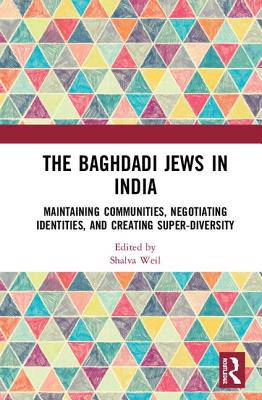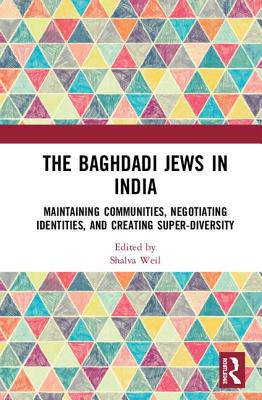
- Afhalen na 1 uur in een winkel met voorraad
- Gratis thuislevering in België vanaf € 30
- Ruim aanbod met 7 miljoen producten
- Afhalen na 1 uur in een winkel met voorraad
- Gratis thuislevering in België vanaf € 30
- Ruim aanbod met 7 miljoen producten
The Baghdadi Jews in India
Maintaining Communities, Negotiating Identities and Creating Super-Diversity
Omschrijving
This book explores the extraordinary differentiation of the Baghdadi Jewish community over time during their sojourn in India from the end of the eighteenth century until their dispersion to Indian diasporas in Israel and English-speaking countries throughout the world after India gained independence in 1947.
Chapters on schools, institutions and culture present how Baghdadis in India managed to maintain their communities by negotiating multiple identities in a stratified and complex society. Several disciplinary perspectives are utilized to explore the super-diversity of the Baghdadis and the ways in which they successfully adapted to new situations during the Raj, while retaining particular traditions and modifying and incorporating others. Providing a comprehensive overview of this community, the contributions to the book show that the legacy of the Baghdadi Jews lives on for Indians today through landmarks and monuments in Mumbai, Pune and Kolkata, and for Jews, through memories woven by members of the community residing in diverse diasporas.
Offering refreshing historical perspectives on the colonial period in India, this book will be of interest to those studying South Asian Studies, Diaspora and Ethnic Studies, Sociology, History, Jewish Studies and Asian Religion.
Specificaties
Betrokkenen
- Uitgeverij:
Inhoud
- Aantal bladzijden:
- 192
- Taal:
- Engels
- Reeks:
Eigenschappen
- Productcode (EAN):
- 9780367203252
- Verschijningsdatum:
- 16/07/2019
- Uitvoering:
- Hardcover
- Formaat:
- Genaaid
- Afmetingen:
- 156 mm x 233 mm
- Gewicht:
- 619 g

Alleen bij Standaard Boekhandel
Beoordelingen
We publiceren alleen reviews die voldoen aan de voorwaarden voor reviews. Bekijk onze voorwaarden voor reviews.










